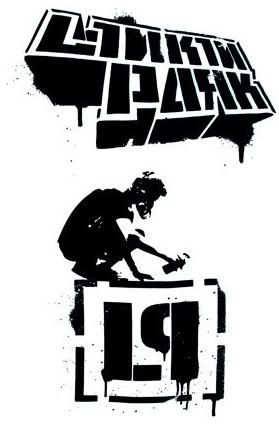Maulana Malik Ibrahim( Syekh Maghribi )
Maulana Malik Ibrahim, also known as Syekh Maghribi, is generally considered to be the 'father'of the Wali Songo. Little is known about his origins, although it has. been suggested that he came either from Persia, Turkey, or Northern India. A possible date for his arrival in Java is A.D. 1404. As one of Indonesia's pioneers in the spreading of the Islamic faith, he was based in East Java and attracted converts in the region of Gresik, where he died in 822 H. (A.D. 1419). His tombstone is of particular interest, since it was not made locally but ordered and shipped to Java from Gujarat in north western India. The stone, carved from white marble and intricately inscribed with Arabic letters, is one of a very few which have found their way to Indonesia. Other examples are known to exist in Palembang and in the North Sumatran province of Aceh.
Sunan Ampel( Raden Rachmat )
If Maulana Malik Ibrahim community in Java, then Sunan Ampel of Surabaya is recognized as the figure who cultivated and consolidated the influence of his predecessor. Tradition has it that Sunan Ampel was a kind of 'older brother', to whom the other walls went for guidance. Indeed, two members of the Wali Songo, Sunan Bonang and Sunan Drajat, were his own sons. It is said further that Sunan Ampel was the spiritual force behind the founding of Java's first Islamic kingdom in Demak. As to the origins of Sunan Ampel, it is believed that his father Syekh Maulana Ibrahim Asmorokondi,who came from the Middle East or somewhere in Central Asia, married a princess of Campa, from where the young Raden Rachmad (Sunan Ampel) arrived in Java early in the 15th century. He died in A.D. 1479 and was buried at Ngampeldenta, Surabaya.
Sunan Giri( Raden Paku)
A mong the traditional literature relating to the Wali Songo the name of Sunan Giri is especially prominent. Furthermore, his names are many, among them Raden Paku, Sultan Abdul Fakih, Maulana 'Ainul Yaqin, as well as Joko Samudra. This last name is connected with the semi- legendary account of his early years. The story goes that he was born from the marriage of a Muslim scholar named Maulana Ishak with a princess of the East Javanese kingdom of Blambangan. Forced to abandon the child shortly after his birth, his mother set him adrift on the ocean from where he was rescued by sailors and brought to Gresik. Here he was adopted by a woman named Nyai Gede Pinatih, who was a ship owner and the sailors' employer.
She subsequently named the young boy Joko Samudra, 'Samudra' meaning ocean. When he was old enough, Joko Samudra was taken by his mother to Surabaya, where he began receiving religious instructions from Sunan Ampel. It was not long before the teacher discovered the boy's true identity and thus, when he considered that the student had learned enough, sent him, together with his own son Makhdum Ibrahim (later to be known as Sunan Bonang), to broaden his education further afield. It is said that the two travelled to Aceh, or possibly Malacca, where they were received by Maulana lshak. Here, Joko Samudra, or Raden Paku as he was known by now, learned of his real parents and the story of his abandonment. After three years of study with his father, Raden Paku returned to Gresik, where he founded a religious institution on the hill at Giri.
Sunan Drajat( Raden Qosim)
Sunan Drajat, also known as Syarifuddin, or Raden Qosim, was the second son of Sunan Ampel and younger brother of Sunan Bonang. He received religious training from his father in Surabaya, following which he moved to the region of Paciran, settling in the village of Jelag. After about two years he had attracted quite a large following and in A.D. 1502 built a mosque, the official opening of which was attended by the other members of the Wali Songo. The village of Jelag, later to be known as Drajat, was eventually granted to the Sunan and his descendants as a token of respect by the Sultan of Demak. Sunan Drajat is best known for his social activity and charitable works, which he carried out in the Paciran area for almost forty years. He is said to have created the Gending Pangkur, a special melody for the traditional Javanese gamelan orchestra, with which he converted the local populace. Some fragments of these ancient instruments have been preserved and are now on display in a small museum next to the Sunan's tomb.
Sunan Bonang( Raden Makhdum Ibrahim)
Raden Makhdum Ibrahim, or Sunan Bonang, was the eldest son of Sunan Ampel of Surabaya. As a young man he travelled together with Raden Paku (Sunan Giri) to North Sumatra, where he received religious education from Syekh Maulana Ishak. Following his return to Java he settled at Bonang on the north coast. It is said that Sunan Bonang did not marry and left no descendants, preferring instead to devote his life to spreading the religious message. He is also believed to have been the first Imam of the Great Mosque in Demak, which he assisted in constructing.
According to one story, Sunan Bonang was responsible for the conversion to Islam of another member of the Wali Songo, Sunan Kalijaga. Not suprising then that he, like his famous student, is highly venerated. An account of the death of Sunan Bonang, apparently in A.D. 1525, records that it had been planned for his remains to be shipped from Bonang to Surabaya, where he was to be buried alongside his father. Due to the rough conditions at sea, however, it was impossible to sail further than Tuban. for which reason his grave is found there today.
SUNAN KUDUS( Ja'far Shodiq )
As an historical figure, Sunan Kudus is difficult to pin down. An inscription discovered above the mihrab in the Al Aqsa Mosque in Kudus reveals that the building was founded in 956 H (A.D. 1549) by Ja'far Shodiq, who is generally identified with Sunan Kudus. The names 'Ja'far Shodiq' and even 'Kudus' itself, however, have puzzled historians, since the former was the name of an 8th century Persian Imam (Muslim spiritual leader), and Kudus (Arabic Al Quds = Holy City) was the ancient name for the city of Jerusalem. What, if any, are the connections ? Local Javanese sources state that Sunan Kudus was a man of great learning, as well as a poet and philosopher.
The son of Sunan Ngudung of Jipang, he was a great religious teacher and is said further to have commanded the forces of the kingdom of Demak, before founding the city of Kudus sometime in the mid 16th century. Sunan Kudus is believed to have died around the year A.D. 1550.
SUNAN MURIA( Raden Umar Said )
Raden Umar Said, later to become known as Sunan Muria, is usually considered to have been the son of Sunan Kalijaga. His field of operation lay chiefly in the area surrounding Mt Muria, including towns like Pati, Juwana, Kudus and Jepara. He is said to have been a loyal supporter of the kingdom of Demak and assisted in the construction of the Great Mosque. As to his character and teaching methods, Sunan Muria is reputed to have preferred moving among the lower stratum of society, often travelling far away from major towns to preach in isolated areas. His sympathy towards many elements of traditional Javanese culture, some of which, like the gamelan orchestra, he adapted and used in the course of teaching, won him both popularity and respect.
Langganan:
Posting Komentar (Atom)






Comments :
0 comments to “SUNAN-SUNAN”
Posting Komentar
Selamat datang para ahli dunia maya,sehabis dari neraka gw ke surga,datang malaikat Malik & Ridwan dan mereka menitipkn pesan wat elu semua.Janganlah berdusta/berbohong.Jika engkau melakukannya maka kamu mendapatkan pukulan keras atas perbuatanmu oleh mamah Mu.Ha...Ha...Ha...Ha....